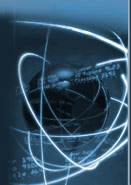FOR IMMEDIATE RELEASE
Boston, MA, USA & Geneva, Switzerland, September 15, 1999
The United Nations body for Trade Facilitation and Electronic Business (UN/CEFACT) and the Organization for the Advancement of Structured Information Standards (OASIS) have joined forces to initiate a worldwide project to standardize XML business specifications. UN/CEFACT and OASIS have established the Electronic Business XML Working Group to develop a technical framework that will enable XML to be utilized in a consistent manner for the exchange of all electronic business data. Industry groups currently working on XML specifications have been invited to participate in the 18-month project. The results of the Electronic Business XML Working Group will be placed in the public domain on XML.org. and unece/cefact.org.
"To be effective for global business, it is vital that XML specifications are based on a common framework," explained Bill Smith (Sun Microsystems), president of OASIS. "That framework does not exist today and, consequently, there are many--often competing--efforts underway worldwide. This new Electronic Business XML Working Group will end the confusion and duplication of effort that currently exists."
Ray Walker, Chairman of the UN/CEFACT Steering Group added, "This is good news especially for small and medium-sized companies, developing countries and economies in transition. In the long term, this initiative will contribute to the growth of world trade."
The Electronic Business XML Working Group will be led by Klaus-Dieter Naujok of the Harbinger Corporation (NASDQA:HRBC), a senior member of the UN/CEFACT Steering committee, and Dr. Robert S. Sutor of IBM (NYSE:IBM), the Chief Strategy Officer of OASIS.
Editor's Notes
XML (Extensible Mark up Language) offers exciting new opportunities for the exchange of business data, be that application-to-application, application-to-person or person-to-application. Structural and semantic information that can be added with XML allows computers to do a great deal of processing on the spot. The combination of more efficient processing, more accurate searching and more flexible linking is set to revolutionize business on the Web.
UN/CEFACT (www.unece.org/cefact) is the United Nations body whose mandate covers worldwide policy and technical development in the area of trade facilitation and electronic business. Headquartered in Geneva, it has developed and promoted many tools for the facilitation of global business processes including UN/EDIFACT, the international EDI standard. Its current work programme includes such topics as Simpl-edi and Object Oriented edi and it strongly supports the development and implementation of open inter-operable, global standards and specifications for electronic business.
OASIS (www.oasis-open.org) is a non-profit, international consortium dedicated solely to product-independent data and content interchange. Focusing on product interoperability, OASIS embraces the complete spectrum of structured information standards including XML, SGML and CGM. OASIS operates XML.org (www.xml.org), the first global XML industry portal featuring the XML.org Registry and Repository that offers automated public access to XML schemas for electronic commerce, business-to-business transactions, and tools and application interoperability. OASIS sponsors include Adobe Systems, AND-USA, Arbortext, Bentley Systems, Boeing, Chrystal Software, Compaq, DataChannel, DMSi, Documentum, Dun & Bradstreet, Enigma, Extricity Software, GCA, IBM, Inso, InterCAP, Interleaf, Interwoven, ISOGEN, ITEDO, Keyfile, Larson Software, Microsoft, NextPage, NIST, Object Design, POET Software, Reed Technology, Reuters, Sabre, SoftQuad, Software AG, STEP, Sun Microsystems, Synthbank, System Development, Wavo, Xerox, XyEnterprise and Zeh Graphics Systems.
Press and Analyst Contacts
|




